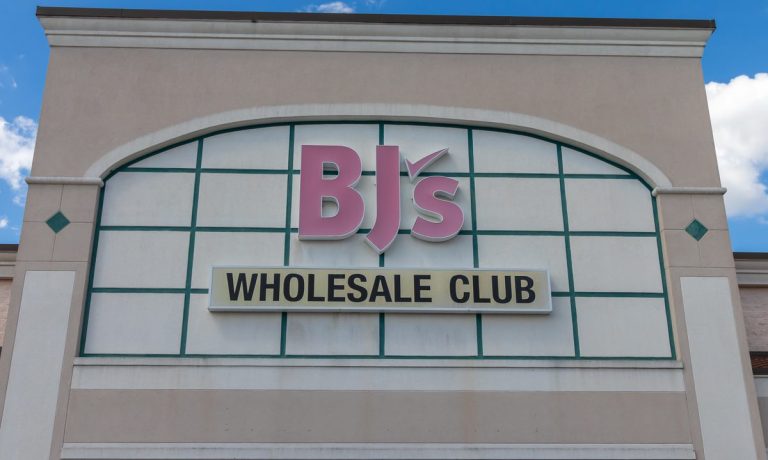Memberships, Digital Sales Jump for BJ’s As More Shoppers Hunt for Bargains

With the push to make the most of every dollar more pronounced than ever amid inflation levels that haven’t been seen since the 1980s, BJ’s Wholesale Club is among the beneficiaries, at least according to its fiscal 2022 first-quarter earnings report on Thursday (May 19).
The company reported a 14.4% year-over-year comparable club sales increase for the 13 weeks ending April 30, although that number drops to 4.1% when gasoline sales are excluded. BJ’s also saw an 11.9% year-over-year increase in membership fee income to $96.6 million.
Digitally enabled sales growth was 26%, so BJ’s members are not just making their bulk purchases in person at their local clubs, according to the company press release. Net sales were up 16.3% year over year.
Investors pushed BJ’s stock price up 10% in early trading Thursday (May 19), a contrast to what we’ve seen this week from Costco, Target and Walmart.
“Our performance in the first quarter was strong, as gains in member traffic underscored the value we provide. Our business model remains more relevant than ever in the current inflationary environment,” said Bob Eddy, president and CEO, BJ’s Wholesale Club, in the press release.
“Our membership has never been stronger,” he said. “We reached 6.5 million members in the first quarter, which serves as a testament to the value that we consistently deliver to our members. Our digital business remains a key competitive advantage. We’re quickly expanding our footprint and we recently closed the acquisition of our perishable distribution network, which will support our future growth efforts and drive long-term shareholder value.”
Related: BJ’s Asks Judge to Dismiss Walmart Patent Suit Over Sam’s Club’s Scan & Go App
In April, BJ’s Wholesale asked a federal judge to throw out a patent lawsuit that Walmart filed against it last month related to a self-checkout app based on technology that retailers have been using for over 10 years.
In a court filing, the company said nothing about Sam’s Club’s Scan & Go process is “inventive or unconventional” and many other retailers provide a self-checkout option. Selling a smartphone and Bluetooth, the order said, doesn’t make it eligible for patents.